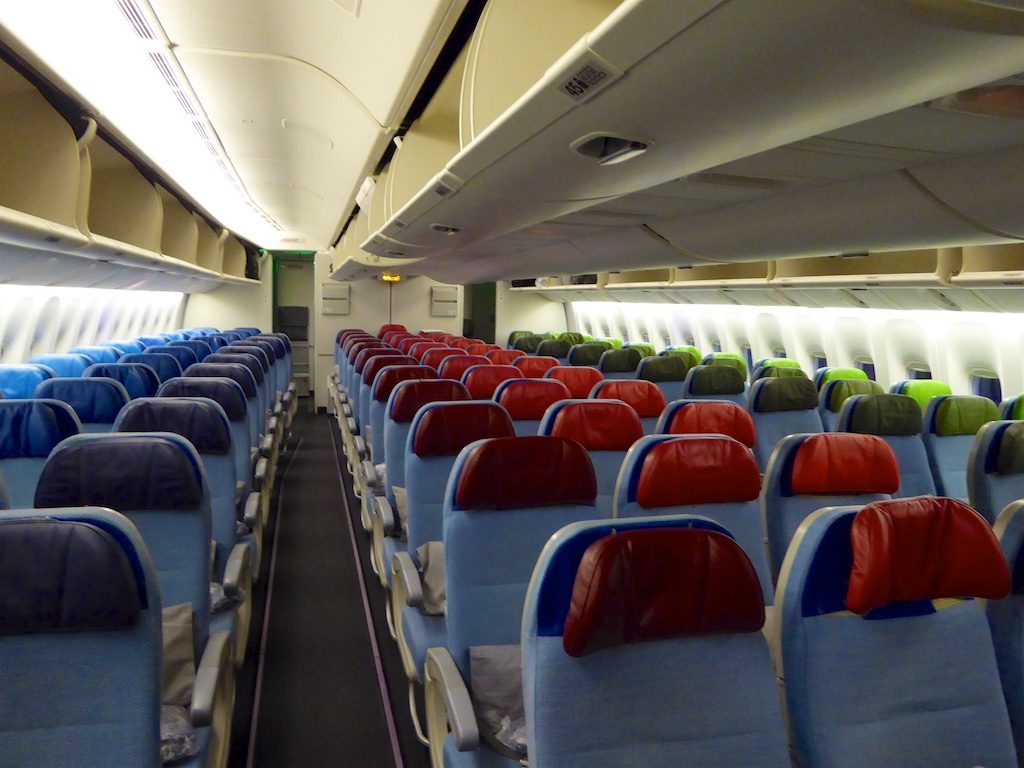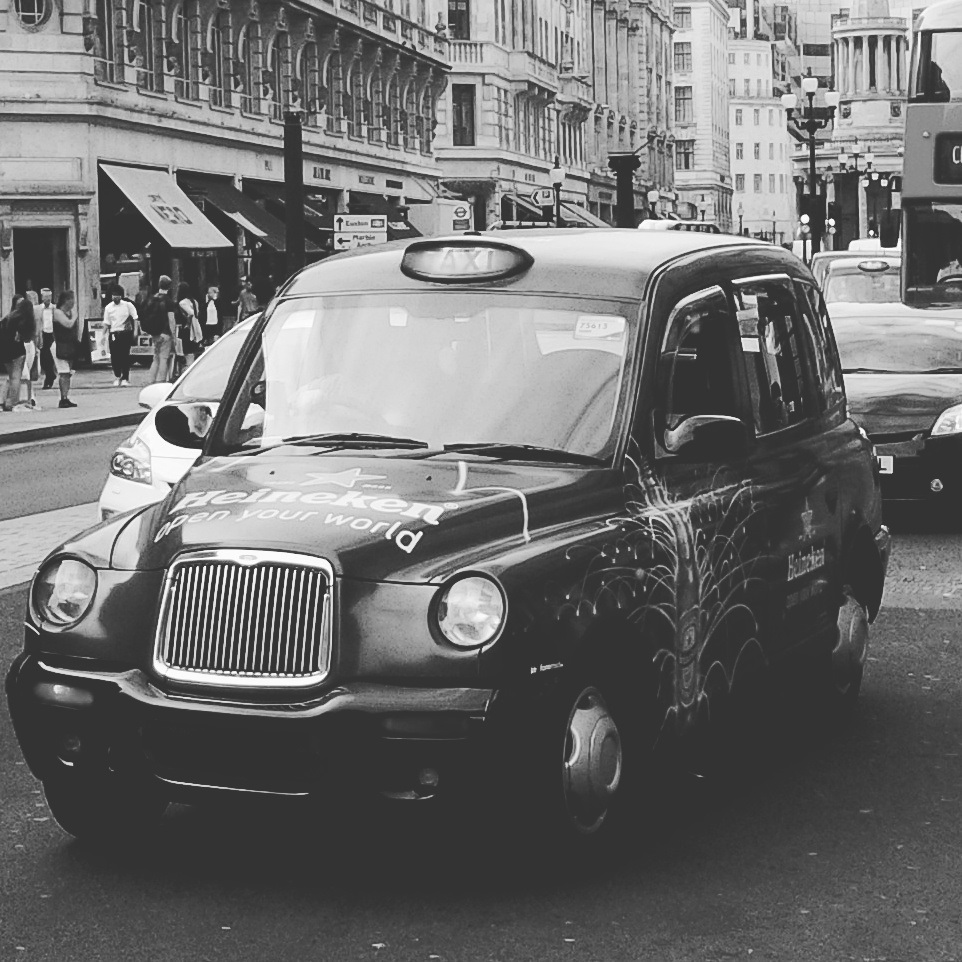Bad Dream(liners)

It’s been a long day. You’ve rushed through the overheated airport and found your way to the gate, where your flight is already boarding. You hurry down the jetway and squeeze your bags into the overhead locker; plonk your weary self into your seat and wonder if the seat has got narrower or you’ve got wider. As you relax, feeling rather chuffed that you’ve made your flight, you feel waves of tiredness pass over you.
Opting not to doze off, you reach for the nearest piece of reading material – that strange journalistic genre of the inflight magazine, where the airline’s view of itself seems strangely at odds with your current view of it.
A couple of pages in you find that letter from the airline CEO explaining how they’re constantly striving to enhance their product and offer a world class service.
There then follows a long list of enhancements that the airline – indeed the whole airline industry – is making to improve their service to you.
In this strange world of marketing speak the word ‘enhancement’ has taken on a rather bizarre, quite contrary and very unwelcome meaning.
***
We start with that Dreamliner you’re sitting in. And first the good news – you’ve not gotten fatter, the seats really are narrower.
In the late 1990s there was a multibillion pound battle taking shape between the two behemoths of the aviation industry. Airbus invested heavily in its A380, reckoning that huge aircraft would be necessary to manage capacity between the world’s capacity-constrained mega hubs.
Boeing meanwhile invested in a replacement for their smaller ageing 767. Boeing dubbed its new aircraft the Dreamliner. The new 787 Dreamliner was intended to save airlines a fortune and allow them to open up direct routes to new destinations. The use of modern materials and new fuel-efficient jets would slash fuel costs. We weren’t so much told about the cost saving – only how much better the aircraft would be for passengers.
The Dreamliner was both hyped beyond belief and massively late in being delivered. Those bigger windows, lower cabin pressure, better in-flight entertainment and increased fuel efficiency were, according to both the manufacturer and airlines, supposed to revolutionise air travel.
For the first time since Concorde entered service, an airliner was being marketed with a name rather than a number (Boeing’s 747 ‘jumbo’ jet was a moniker applied by the press rather than Boeing themselves.)
Yet when you squeeze into your economy seat you can’t help but think things might just be going backwards.
Boeing’s original mock-up of the Dreamliner cabin foresaw eight seats across the economy cabin – two seats by each window and a bank of four in the middle between the isles – for a total of eight across.
Yet virtually every airline – save Japan Air Lines – has now installed nine seats across the cabin. It’s a tight squeeze. Particularly because in the years since the Dreamliner programme was launched by Boeing in the early 2000s, waistlines have grown bigger.
For most passengers the Dreamliner has turned into something of a bad dream. It’s cramped and uncomfortable compared with what they were used to.
Indeed, by contrast, when you now fly on an aging 777 the economy cabin feels pleasantly spacious with just nine seats across. Sure the cabin might look a bit tatty and the video screens a bit blurry, but you can settle down with a good book and a bit of space to call your own. It hasn’t been hyped or enhanced. It’s just comfortable.
***
Maybe, though, you read in the airline magazine about how the airline is planning to “enhance” and “upgrade” their older 777s. When you read their spin, you should be worried.
Sure they’ll fit new inflight entertainment, possibly with power plugs for your laptop and ipad. And maybe even in-flight wifi. But they’ll also take the opportunity to slim down the seats and squeeze in ten seats across the cabin when previously there were just nine.
You might be able to power your laptop but you’ll be too squashed in to use it. There’s new a global trend in retrofitting 777s to cram in more seats.
Yet airline PR departments will go wild with their ‘refreshed’, ‘new’ and ‘upgraded’ cabins. But increasing most airlines are making the 777 an equally unpleasant experience – all masked in gloriously positive PR.
***
Meanwhile on shorter flights around Europe, British Airways recently trumpeted the cabin ‘revamp’ on their short haul fleet of Airbus A319s and A320s.
The press release gushed that they were “taking your comfort to new heights” with “contemporary LED lighting that adjusts throughout the flight to help you relax” and “bespoke leather seats innovatively designed to maximise your personal space”.
All this means, you guessed it, that they’ve slashed the legroom – by up to four inches – to squeeze in an extra 11 seats per plan. Less room and an more people all fighting for space in the overhead lockers doesn’t exactly make for a relaxing flight.
BA’s legroom is now on par with Ryanair. None of that makes it into the press release.
***
And so for many passengers it comes as a surprise when they take a flight and the marketing spin is so wildly out of kilter with reality.
I don’t particularly object to such cost savings. Flying is cheaper and more accessible than it’s ever been. And legacy carriers have to adapt to stay competitive.
But I really object to airline PR departments spinning lies to their customers.
Just this week a BA press release enthused:
“From 11 January, we’re upgrading our food offering in our short haul economy cabins (Euro Traveller and UK Domestic) on flights to and from London Heathrow and London Gatwick.”
“Offering you more choice and a wide selection of the flavours you love from the ‘M&S on board’ menu.”
It’s the adjective ‘upgrading’ that really gets me.
You’ve surely read enough to realise this isn’t an upgrade. It means they’re stopping free food and drink.
Rather than just telling us the truth – that they need to make ends meet amongst fierce competition – they insist on wrapping changes up in positive spin.
What’s worse is that airline PR departments seem intent on blaming you for the change.
According to BA’s CEO, the demand for change is coming from passengers:
“[the passengers] told us we are experts in flying and service, but when it comes to catering on short-haul flights, they want to choose from a wider range of premium products.
Ask the right questions and you can get a survey to tell you whatever you want.
You can bet, when asked, no one told BA they’d like to pay for a gin and tonic that was previously free.
They’ve clearly run a survey to give them the results they wanted.
***
Businesses frequently get in trouble when senior managers start to believe their own PR departments, or search only for evidence which backs up their own thinking.
Politicians get in trouble when they start to believe their own PR too.
Indeed, I’d argue that the popular rebellion against mainstream politicians – witness Donald Trump, Bernie Sanders, Brexit, UKIP, and the rest – is a result principally of the public being sold too often one version of reality which is so at odds with their own perception of reality.
***
So when you read in your inflight magazine that the service your airline is providing has been enhanced, you too might think ‘no it hasn’t’ – and I’ll vote for – or buy from – someone else next time I’m booking my flights.



